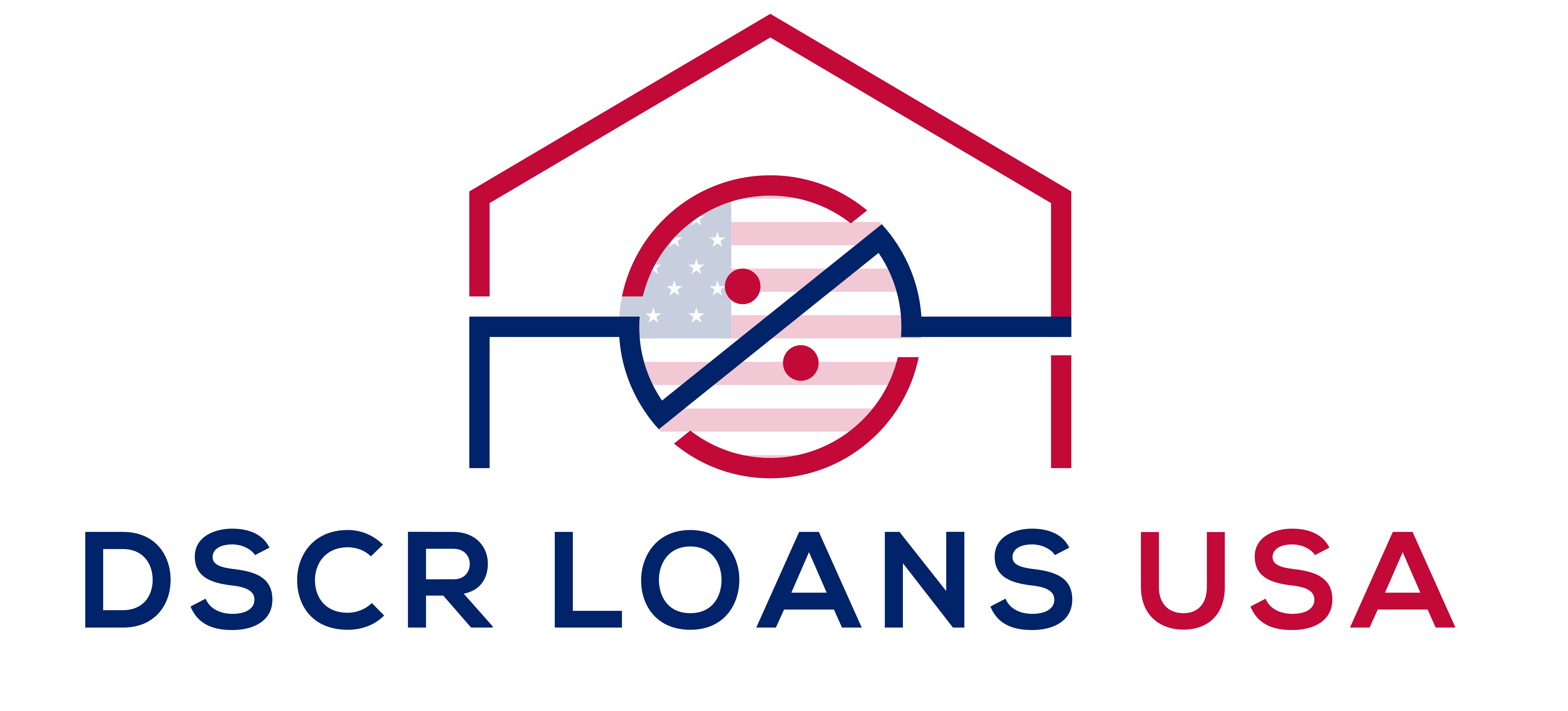How To Qualify for a DSCR Loan
Investors seeking a DSCR loan must meet certain criteria, but what are the dscr loan requirements exactly? This article cuts through the confusion to outline the essentials: minimum DSCR ratios, credit score thresholds, acceptable LTV ratios, eligible property types, and expected down payment figures. These necessities set the stage for a successful application, ensuring your investment property can generate the income needed to fulfill loan obligations.
Key Takeaways
- DSCR loans prioritize a rental property’s income generation potential over the personal creditworthiness of the investor, which is assessed through the Debt Service Coverage Ratio (DSCR) to determine loan eligibility.
- DSCR loan approval depends on various factors including the investor’s credit score, the DSCR figure itself (preferably above 1.0), Loan-to-Value (LTV) ratios, property types, ownership structures, and sizeable down payments.
- To increase approval odds, investors should strive to maximize rental income, maintain a good credit score, and ensure they have sufficient documentation to prove the property’s income potential and their financial stability.
Understanding DSCR Loans: An Overview for Investors
At their core, DSCR loans are designed specifically for rental property investors, providing a tailored financial solution that caters to the unique needs of this market. Unlike traditional loan options, DSCR loans focus on the income potential of the property being invested in rather than on the personal income or creditworthiness of the investor. This characteristic makes DSCR loans an appealing option for real estate investors who can demonstrate a property’s ability to generate enough income to meet loan repayments.
However, securing a DSCR loan is not without its challenges. The financial health of the investor and the merits of the property are both scrutinized during the loan process. Therefore, understanding the DSCR loan requirements and aligning one’s investment strategy to meet them is a crucial first step towards successful real estate investing with DSCR loans.
The Role of Debt Service Coverage Ratio in DSCR Loans
The Debt Service Coverage Ratio (DSCR) is a crucial component of DSCR loans. It is used by lenders to determine the borrower’s ability to meet debt obligations. It’s a metric that represents the property’s cash flow in relation to its debt obligations. The DSCR is calculated by dividing a property’s net operating income (NOI) by its Total Debt Service. This ratio is used to assess the property’s ability to cover its debt obligations based on the property’s net operating income. This ratio helps lenders evaluate the profitability of the property and the borrower’s ability to handle operating costs and debt service without resorting to external financing.
A positive DSCR (above 1.0) is generally seen as favorable for any investment. For commercial investments, lenders prefer a DSCR of 1.25 or higher, while for residential properties, a minimum of 1.20 is commonly seen as favorable. A DSCR below 1 indicates negative cash flow, which could signal potential difficulties in repaying the loan. Consequently, it is common for lenders to require borrowers to maintain a certain minimum DSCR for the duration of the loan to minimize the risk of default.
Key Factors Affecting DSCR Loan Eligibility
Securing a DSCR loan is contingent upon several key factors. Each of these elements plays a role in determining the investor’s eligibility for the loan. They include:
- Credit score
- DSCR threshold
- Loan-to-Value (LTV) ratio
- Property type
- Down payment expectations
It’s important to note that unlike traditional mortgages, DSCR loans focus on the property’s ability to generate income rather than the personal income of the investor. This paradigm shift opens the door for a wider range of investors to access this financial instrument.
Credit Score Requirements
While the focus of DSCR loans might be on the property’s income potential, the investor’s credit score remains a vital aspect of the loan qualification process. Lenders typically require a credit score higher than 620 for DSCR loan eligibility. This minimum requirement may vary between lenders, but a good credit score is critical for DSCR loan qualification.
Aside from meeting the eligibility requirements, a strong credit score can also offer additional benefits. For instance, better loan terms are available for investors with higher credit scores. Therefore, maintaining or improving one’s credit score could be a strategic move for securing advantageous DSCR loan conditions.
DSCR Threshold
DSCR, as we’ve seen, is the lifeblood of a DSCR loan. As such, lenders typically set minimum DSCR requirements somewhere between 1.2 and 1.25. This threshold ensures that borrowers can adequately repay the loan. However, for single-unit properties, loans can be granted for a DSCR as low as 0.75, provided the LTV doesn’t exceed 75%.
A strong DSCR of at least 1.25 indicates sufficient cash flow for servicing debt and can lead to better borrowing terms. A higher Debt Service Coverage Ratio can even result in more favorable interest rates for the borrower. So, optimizing your investment strategy to achieve a high DSCR can significantly improve your loan terms.
Loan-to-Value (LTV) Ratio
The Loan-to-Value (LTV) ratio is another crucial factor in DSCR loan eligibility. This ratio measures the risk level lenders undertake when granting a loan. It’s calculated by dividing the loan amount by the appraised property value. For DSCR loans, an LTV ratio of 80% or less is commonly required, reflecting the borrower’s equity stake in the property.
A lower LTV ratio indicates a higher equity stake, which reduces the lender’s risk and could potentially lead to better loan terms. Therefore, investors seeking favorable loan conditions should strive to maintain a low LTV ratio, often achieved through a substantial down payment or having significant equity in the property.
Property Type and Investment Purpose
The flexibility of DSCR loans extends to the variety of property types and investment purposes they accommodate. They can be used for:
- Single-family homes
- Townhomes
- Villas
- Condos
- Multi-unit properties
This wide range of eligible property types allows investors to choose the kind of investment property that best fits their investment strategy among various investment properties, taking into consideration each property’s income potential.
Despite a common misconception, DSCR loans are not just for commercial properties. They’re widely used for various residential properties too, making them a versatile choice for real estate investors. Furthermore, DSCR loans accommodate different ownership structures, including partnerships and limited liability companies (LLCs), which adds another layer of flexibility for collaborative investment ventures.
Down Payment Expectations
The down payment is a pivotal factor in securing a DSCR loan. Typically, a down payment ranging between 20 to 30 percent of the property’s purchase price is required. This investment upfront increases the borrower’s equity stake in the property and reduces the LTV ratio, which can make the loan more attractive to lenders.
However, it’s worth noting that the down payment expectations can vary based on the type of property. For instance, larger multi-family properties often require a higher down payment, ranging from 20% to 25%. Therefore, investors should plan their finances accordingly to meet these expectations and improve their chances of loan approval.
Essential Documentation for DSCR Loan Applications

When applying for a DSCR loan, specific documentation is necessary to support your application. These documents focus primarily on assessing the income-generation potential of the property rather than the personal income of the borrower. This requirement aligns with the inherent focus of DSCR loans on the property’s income over the investor’s personal income.
Among these essential documents are:
- Lease agreements that provide proof of rental income
- Bank statements to evaluate the borrower’s cash flow
- Proof of available funds for the down payment and financial reserves
These documents collectively provide a comprehensive overview of your financial health and the income potential of the property, which are crucial in the DSCR loan evaluation process.
The DSCR Loan Application Process: Step-by-Step Guide
Once you’ve gathered the needed documentation, the next step is to initiate the DSCR loan application process. The first stage involves finding a lender that offers DSCR loans. You can accomplish this by researching online or consulting with real estate professionals. Once you’ve found a suitable lender, you’ll need to gather details about the desired DSCR, loan terms, amount, and associated fees.
Private DSCR loans have various benefits compared to traditional loans. They include faster approval times, less stringent documentation requirements, and more flexibility in loan structures. By following this step-by-step guide, you can navigate the application process smoothly and increase your chances of securing a DSCR loan that aligns with your investment strategy.
DSCR Loan Options: Comparing Different Types
DSCR loans come in various forms, each with its own set of characteristics. Fixed-rate DSCR loans, for instance, provide a consistent interest rate throughout the duration of the loan. This stability makes them a suitable choice for long-term real estate investments, where predictability of costs is a significant advantage.
Other options for loans include:
- Adjustable-rate DSCR loans, which offer a lower initial rate subject to change based on market conditions
- Hybrid ARMs, which combine an initial fixed rate period followed by an adjustable rate
- Interest-only DSCR loans, where borrowers pay just the interest for a set period
These options can be beneficial for certain investment strategies but require careful planning for principal repayments later.
Finally, DSCR loans also feature flexible structuring options, including the possibility of choosing prepayment penalties to secure lower interest rates.
Strategies to Improve Your DSCR Loan Approval Odds
While meeting the basic DSCR loan requirements is essential, there are strategies you can employ to improve your chances of loan approval. One such strategy is to optimize your rental income. This can be accomplished through various investment strategies, including short-term rentals and the Buy, Rehab, Rent, Refinance, Repeat (BRRRR) method. By increasing your rental income, you can improve your DSCR, making your loan application more appealing to lenders.
Another strategy is to boost your credit score. Even a slight increase can lead to reduced interest rates. For example, an increase from 711 to 750 can result in a 0.25% interest rate reduction.
Lastly, even investors with a DSCR less than 1 can secure loans by demonstrating that their property generates sufficient income and showcasing the sustainability and growth potential of their investment through a solid business plan and financial projections.
Common Misconceptions About DSCR Loans
Despite their potential benefits, DSCR loans are shrouded in several misconceptions. One common misconception is that DSCR loans are exclusively for large commercial entities. In reality, DSCR loans are also accessible for smaller businesses. In fact, Small Business DSCR Loans are specifically designed to meet the financial needs of a range of businesses with existing revenue streams.
Another misconception is that private DSCR loans are less favorable than traditional bank loans. However, private DSCR loans offer a more flexible lending option, focusing on property income rather than just creditworthiness. This flexibility makes them an appealing choice for many real estate investors.
Real-Life Examples: Successful DSCR Loan Applications
To illustrate the potential of DSCR loans, let’s look at some real-life examples. In San Diego, a real estate investor secured a DSCR loan to fund significant renovations on a 4-unit residential property. The loan facilitated an investment of $500,000 for property improvements.
As a result of the renovations, the investor was able to increase both the market value and rental income of the property, leading to an improvement in the property’s cash flow. This strategic enhancement led to a profitable transaction upon the property’s sale. This example showcases the potential of DSCR loans in facilitating property improvements that can lead to higher rental income and increased property value.
Summary
In conclusion, DSCR loans offer a unique financial solution for real estate investors by focusing on the income potential of the property. With their flexible eligibility criteria and variety of loan options, DSCR loans cater to a wide range of investors and investment strategies. By understanding the DSCR loan requirements, following the application process, and employing strategies to improve loan approval odds, investors can unlock the potential of DSCR loans to fuel their property investments. Remember, successful real estate investing isn’t just about finding the right property; it’s also about securing the right financing.
Frequently Asked Questions
What is a DSCR loan?
A DSCR loan is a type of loan tailored for rental property investors, placing emphasis on the property’s income potential rather than the investor’s personal income or creditworthiness. This allows investors to secure financing based on the rental property’s revenue stream rather than their individual financial situation.
How is the DSCR calculated?
The DSCR is calculated by dividing a property’s Net Operating Income (NOI) by its Total Debt Service. This provides a clear measure of a property’s ability to cover its debt obligations.
What is a good DSCR for loan eligibility?
A DSCR above 1.0 is generally seen as favorable for loan eligibility, with commercial investments preferring a DSCR of 1.25 or higher, and residential properties a minimum of 1.20 is commonly seen as favorable.
What are the key factors affecting DSCR loan eligibility?
The key factors affecting DSCR loan eligibility include credit score, DSCR threshold, LTV ratio, property type, and down payment expectations. These factors play a significant role in determining eligibility for a DSCR loan.
Are DSCR loans only for large commercial entities?
No, DSCR loans are accessible for smaller businesses and a wide range of property types, including residential properties. Therefore, they are not only for large commercial entities.
Additional DSCR Resources
DSCR Guides By State
- Best DSCR Lenders in Texas
- California DSCR Loan Guide
- Maryland DSCR Loan Guide
- Florida DSRC Loan Guide
- Arizona DSCR Loan Guide
- New York DSCR Loan Guide
- Illinois DSCR Loan Guide
- Georgia DSCR Loan Guide
- Indiana DSCR Loan Guide
DSCR Loan Tips and Guides
Ready for More Great Tips and Information? Join Our Email List Today!


Leave a Reply